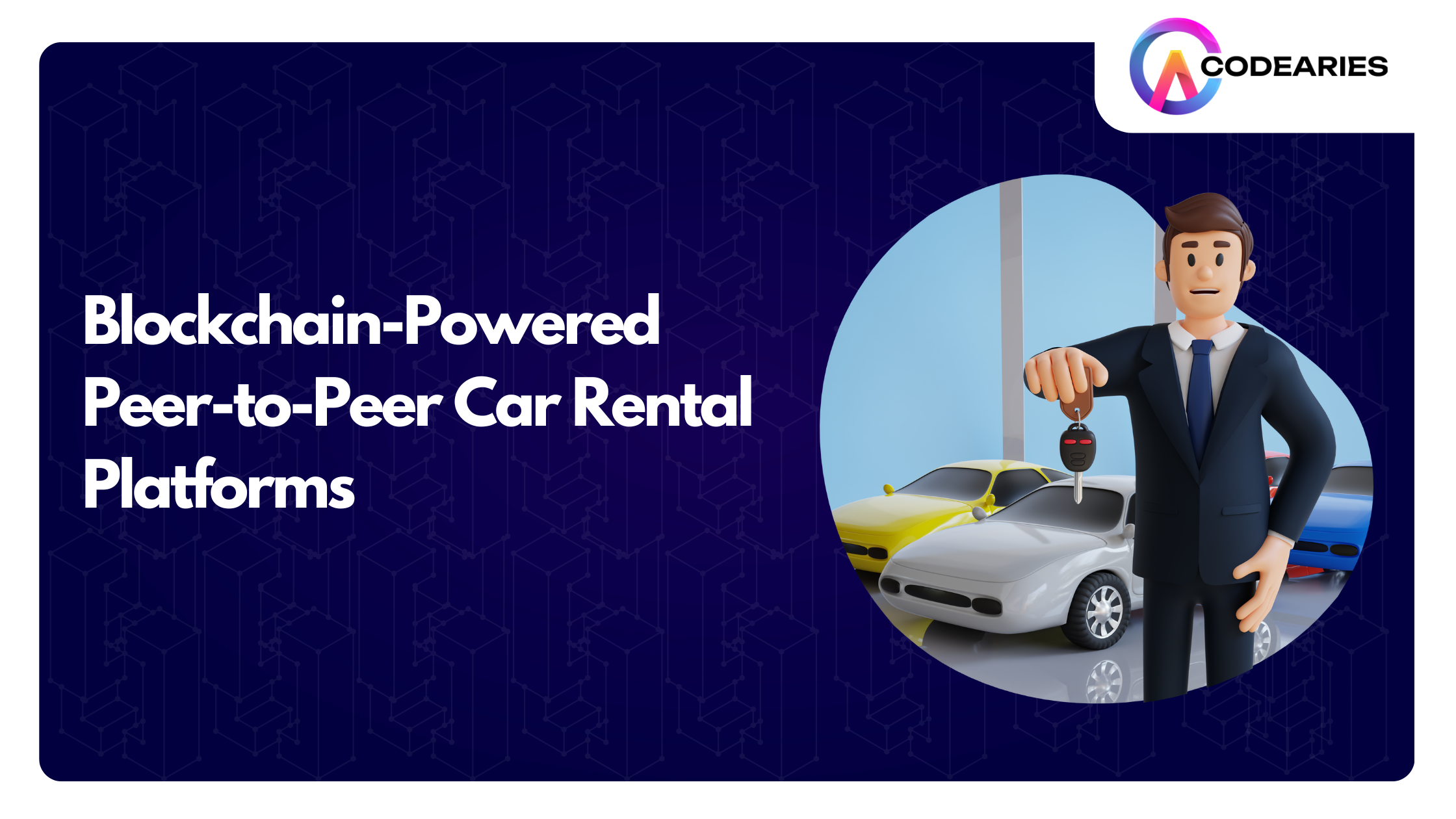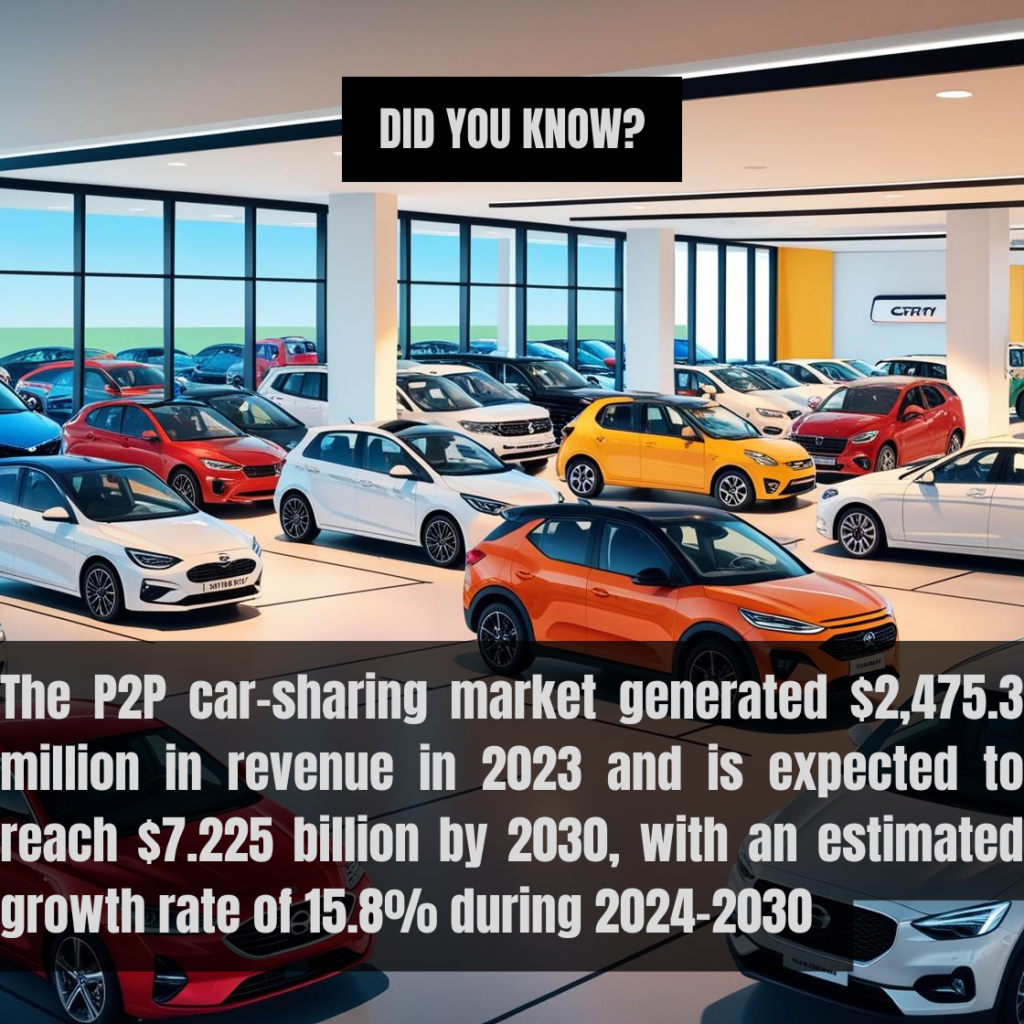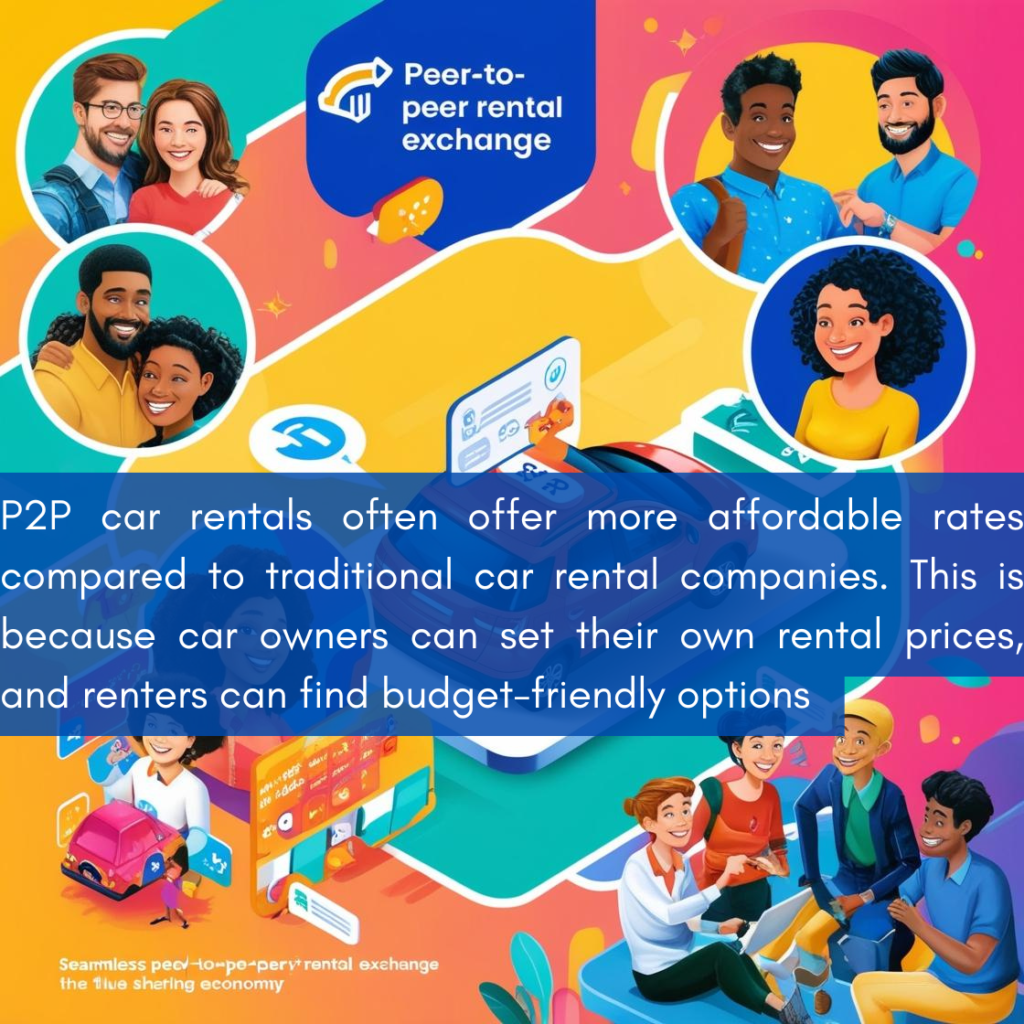
Imagine standing in line at a car rental counter, tired after a long flight, only to discover hidden fees and endless paperwork. Now imagine booking a car in seconds, directly from another user, with clear terms, secure payments, and no middlemen. Welcome to the world of blockchain-powered peer-to-peer car rental platforms, where cutting-edge technology meets ultimate convenience.
These platforms are transforming the way people share vehicles, combining blockchain’s transparency and security with the flexibility of peer-to-peer connections. From reducing costs to fostering trust, they’re opening up a new road for renters and car owners alike. Buckle up as we explore how blockchain is driving the future of car rentals.
What Are Blockchain-Powered Peer-to-Peer Platforms?
Blockchain-powered peer-to-peer platforms are not your average rental apps. They are advanced ecosystems where car owners and renters connect directly, with every transaction managed and secured through blockchain technology.
Think of them as the Airbnb of car rentals, but with one big difference: no middlemen and complete transparency. Blockchain ensures that every booking, payment, and condition is recorded on a public, tamper-proof ledger. Whether you’re a car owner looking to make extra cash or a traveler searching for a hassle-free rental, these platforms are a game-changer.

How Blockchain Technology Transforms Car Rentals
Blockchain is like the ultimate traffic cop for car rentals—ensuring everything flows smoothly, safely, and fairly. Here’s how:
- Decentralization: No central authority means you deal directly with the other party, saving time and money.
- Transparency: Every transaction is etched onto the blockchain for all to see. Hidden fees? Forget about it.
- Security: With advanced encryption and unchangeable records, your data and payments are always protected.
Traditional rental models seem archaic compared to the efficiency and fairness blockchain offers.
Core Features of Blockchain-Based Car Rental Platforms
So, what makes these platforms so special? Here are their key ingredients:

- Smart Contracts: These are like digital agreements that automatically enforce the terms—no human intervention needed. Book a car, pay securely, and the smart contract handles the rest.
- Cryptocurrency Payments: Pay in Bitcoin, Ethereum, or other digital currencies, cutting out exchange fees and delays.
- Immutable Records: All agreements and transactions are permanently stored, ensuring clarity and accountability.
These features come together to create a rental experience that’s light-years ahead of traditional systems.
Benefits of Peer-to-Peer Car Rentals via Blockchain
Why are these platforms gaining traction? Because they offer advantages no traditional service can match:
- Cost Savings: Without middlemen inflating prices, rentals are cheaper, and owners earn more.
- Global Reach: Rent a car anywhere in the world without worrying about currency exchanges.
- Trust and Transparency: Blockchain ensures honesty by making all terms and transactions visible to both parties.
- Flexibility: Owners can customize terms, while renters enjoy a diverse range of vehicles.
It’s like upgrading from a clunky old sedan to a sleek electric sports car—it just works better.
Smart Contracts in Peer-to-Peer Car Rentals
If blockchain platforms are a car, smart contracts are the engine that keeps it running. These digital agreements automate key processes, making rentals smoother and faster:
- Automate payments by releasing funds only when all conditions are satisfied, minimizing disputes.
- Apply penalties automatically for damages, eliminating awkward arguments.
- Lock in rentals instantly with confirmed bookings and fixed terms.
This level of precision eliminates the human errors and frustrations often seen with traditional rentals.
Decentralization: The Backbone of Blockchain Rentals
Ever feel like traditional car rental companies have too much power? That’s because they do. They set the prices, decide the fees, and keep a hefty portion of the profits. Blockchain decentralization puts the control back in your hands.
With no middlemen calling the shots:
- Owners and renters interact directly.
- Transactions are faster and cheaper.
- Platforms are less prone to system-wide crashes or vulnerabilities.
In a decentralized world, everyone has a fair shot—and that’s the way it should be.
Security Enhancements Through Blockchain
Security isn’t just a feature of blockchain—it’s its DNA. Here’s how it makes rentals safer:
- Immutable Records: Once something is added to the blockchain, it can’t be changed or deleted.
- Encrypted Transactions: Payments and data exchanges are protected with cutting-edge encryption.
- Distributed Storage: Information isn’t stored in one vulnerable spot, reducing the risk of hacking.
Whether you’re renting out your car or taking one on the road, blockchain ensures your peace of mind.
Reducing Costs for Both Renters and Owners
Let’s talk about money, because who doesn’t love saving some? Blockchain eliminates the need for centralized platforms that take hefty commissions.
- For Renters: Enjoy lower fees and competitive rates.
- For Owners: Keep more of what you earn, instead of handing over a chunk to third parties.
It’s a win-win scenario, designed to make car rentals fairer and more profitable for everyone involved.
Transparency and Trust with Blockchain
Would you trust a stranger with your car? Probably not—unless blockchain is involved. Its transparent, tamper-proof nature builds trust by:
- Providing Clear Terms: Everything from rental duration to payment details is out in the open.
- Documenting Vehicle History: Know exactly what condition the car was in before and after the rental.
- Ensuring Accountability: Both parties are held to their agreements without bias.
Blockchain takes the guesswork and mistrust out of the equation, paving the way for smoother transactions.
Real-World Examples of Blockchain Car Rental Platforms
This isn’t just a futuristic concept—blockchain car rental platforms are already making waves.
- Turo on Blockchain: While Turo is known for peer-to-peer rentals, blockchain integration is taking it to the next level with transparency and smart contracts.
- Mobility DApps: Decentralized applications (DApps) are emerging as the backbone for fully automated, trustless car rentals.
These platforms prove that blockchain isn’t just a buzzword; it’s the future of mobility.
Conclusion
Blockchain-powered peer-to-peer car rental platforms are more than just a trend—they’re a revolution. By combining transparency, security, and cost-effectiveness, they’re paving the way for a fairer and more efficient car rental industry.
Whether you’re looking to rent a car for a weekend getaway or considering sharing your vehicle to earn extra income, these platforms offer a better, smarter way to drive forward. Blockchain isn’t just shaping the future—it is the future.\
FAQs
Is Uber a Peer-to-Peer Network?
Uber facilitates peer-to-peer interactions by connecting drivers and riders, but it is not a true peer-to-peer (P2P) network. In a true P2P network, participants interact directly with one another without the involvement of a central authority. Uber operates as a centralized platform, managing transactions, enforcing rules, and maintaining the app infrastructure. This central control ensures the system’s reliability and efficiency but differentiates it from decentralized P2P systems like blockchain networks or file-sharing platforms.
Is Blockchain a Peer-to-Peer Distributed Ledger Technology?
Blockchain is a quintessential example of a peer-to-peer (P2P) distributed ledger technology (DLT). It operates by distributing a synchronized ledger across a network of nodes, enabling decentralized transaction validation and data sharing. Unlike centralized systems, blockchain eliminates the need for intermediaries, relying instead on cryptographic algorithms and consensus mechanisms to ensure data integrity. Each node in the blockchain network holds a copy of the ledger and contributes to its security and transparency, embodying the core principles of P2P architecture.
How Big is the Peer-to-Peer Lending Market?
The peer-to-peer lending market has grown substantially in recent years. As of 2023, the market was valued at approximately $83 billion and is expected to reach $1.0 trillion by 2030, with a compound annual growth rate (CAGR) exceeding 40% from 2024 to 2030. This growth is fueled by increasing demand for alternative financing solutions, advancements in financial technology, and a shift towards digital platforms. P2P lending platforms appeal to both borrowers seeking flexible options and investors seeking higher returns compared to traditional banking systems.
How Does P2P Sharing Work?
Peer-to-peer (P2P) sharing enables direct interactions and exchanges between users without the need for centralized intermediaries. In a P2P system, each participant acts as both a provider and consumer of resources, fostering decentralized collaboration. Examples of P2P sharing include file-sharing systems like BitTorrent, where users upload and download files directly from other users’ devices, and blockchain networks, where nodes validate and share data to maintain a distributed ledger. The decentralization in P2P systems reduces dependency on centralized servers, enhances scalability, and promotes cost efficiency.


